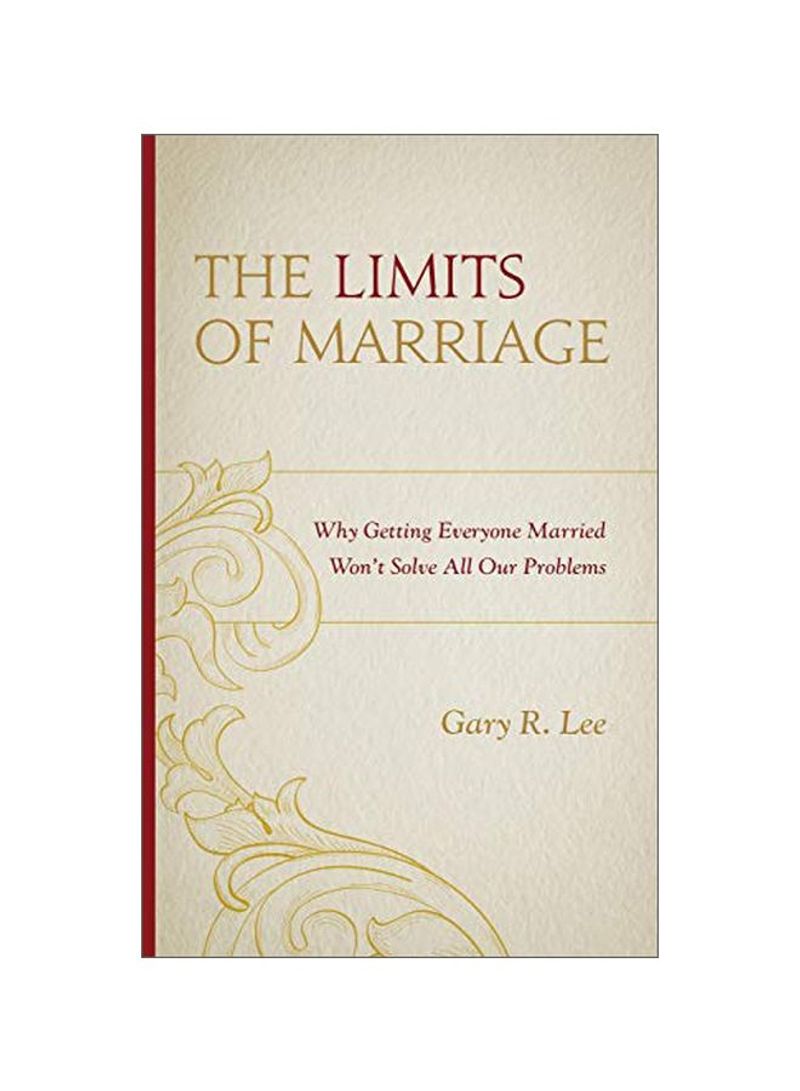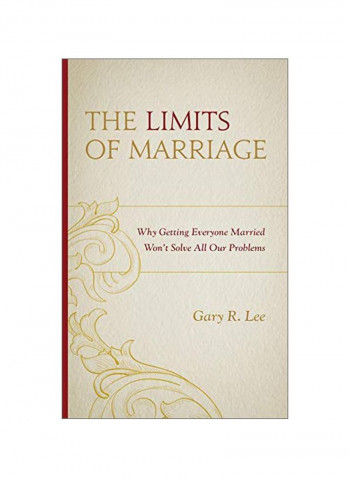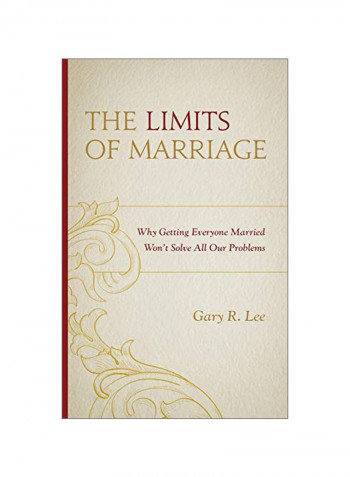The Limits Of Marriage: Why Getting Everyone Married Won't Solve All Our Problems Hardcover
Recommend
Sort by
Rating
Date
Specifications
Author 1
Gary R. Lee
Book Description
This book documents and explains the remarkable decline in the American marriage rate that began about 1970. This decline has occurred in spite of the fact that married people are better off than unmarried people in many ways. Many other attempts to explain the "retreat from marriage" blame it on culture change involving a devaluation of marriage, and/or on ignorance of the benefits of marriage among the unmarried population. In turn, because unmarried adults and single-parent families are poorer than others, poverty and its associated problems are attributed to the failure to marry. The argument presented here is that the declining marriage rate is due to the deteriorating position of workers, particularly men, in the American economy. Not only have jobs disappeared and wages decreased, especially for the less-educated, but existing jobs have become more precarious. Less-educated workers can't count on having jobs in the future, and can't count on earning enough to support families if they have jobs because their wages have stagnated. In this economic environment, the flexibility to change partners becomes a survival strategy for the economically marginalized population, which has been increasing in size for the past four decades. Arrangements such as cohabitation allow for this flexibility; marriage does not. This argument implies that marriage is not a realistic choice for many Americans. In fact, it is a choice that many people don't actually have. Marriages between economically marginal men and women would not eventuate in the benefits that middle-class people experience when they marry, and would eliminate an option they may need to survive in the face of unrelenting poverty. We won't convince these people that marriage would improve their lives, because in most cases it wouldn't be true. To return the marriage rate to its pre-1970 level, we need to address the economic factors that have caused the decline.
ISBN-13
9781498512923
Language
English
Publisher
Lexington Books
Publication Date
01-May-15
Number of Pages
244
About the Author
Gary R. Lee is professor emeritus of sociology at Bowling Green State University.
Editorial Review
The Limits of Marriage is an important book, and it deserves a large audience.... Lee is right to remind us that marrying (or not marrying) is not a matter of making good or bad choices but about the choices many of us don't really have. His goal, in the end, is not to `'promote marriage' or extoll its virtues. It is to promote greater opportunity-to expand the choice set-that will allow us to pursue our aspirations (or not) for a fulfilling marriage and satisfying family life. In this, Gary Lee succeeds with flying colors. The Limits of Marriage has my strongest recommendation. * Contemporary Sociology * Gary Lee sifts through the ideology and hyperbole of a large, complicated, and often polarized literature on why people don't get married or stay married. He convincingly argues that it's not a matter of American culture run amok or the lack of knowledge about the benefits of marriage. It's not about bad choices but about the choices we don't have. It's about bad jobs and growing income inequality. -- Daniel T. Lichter, Cornell University This book is a fascinating account of why marriage matters - or doesn't. It is a must-read for policymakers and scholars interested in families or inequality. The Limits of Marriage offers up not only a thoughtful analysis about the potential of marriage for solving poverty and improving child wellbeing, but a compelling and nuanced interpretation of the retreat from marriage among the disadvantaged in our society. -- Pamela J. Smock, University of Michigan at Ann Arbor



